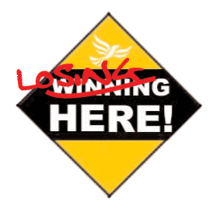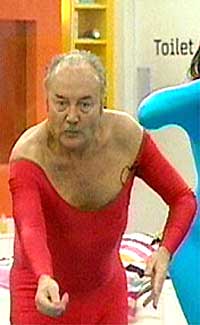In the latest installment of
my look at second chambers around the world, it's time now to look at
Seanad Éireann in the Republic of Ireland. As I write this the new Seanad is in the process of being chosen, with two of the three sections now complete. (See
Wikipedia: Members of the 23rd Seanad for the full list of members.)
Composition: 60 members chosen as follows:
* 11 members nominated by the Taoiseach
* 3 members elected by graduates of the
University of Dublin/Trinity College, Dublin (they're basically the same thing) by
Single Transferable Vote* 3 members elected by graduates of the
National University of Ireland by Single Transferable Vote
* 43 members nominated from five special panels ("
Vocational Panels"), with nominations made by either members of the Oireachtas (the whole Parliament) or by relevant organisations connected with the field, and elected by TDs, outgoing Senators and local councillors). Single Transferable Vote is used for the elections, but with voting papers each worth 1000 to allow for greater fractions. The panels break down as follows:
**7 from the
Administrative Panel**11 from the
Agricultural Panel**5 from the
Cultural and Educational Panel**11 from the
Labour Panel**9 from the
Industrial and Commercial PanelOne other point of note is that recent Taoisigh have followed a policy of nominating at least one Senator from Northern Ireland.
Fairness of representation: Where do we begin?
The university constituencies don't cover all tertiary level institutions. Many question why only university graduates can directly elect Senators, not all citizens. It seems graduates living abroad can vote - indeed many graduates in Northern Ireland are known to exercise their vote. (Don't ask me if someone with degrees from both institutions can vote in both!)
The vocational panels is an interesting idea and in many ways is arguably
more socially unifying than the British Parliament. Rather than a division on the basis of station in society, the Seanad is based on the idea of co-operation and interdependence in society. Of course it's not too clear if the current division of panels reflects modern Irish society correctly. The nomination process is much critised, especially as some nominating organisations are very obscure. And as party politicians are voting to (s)elect the Senators, it's unsurprising that they mainly elect party politicians. All of the 43 panel Senators just elected are party politicians. Smaller parties sometimes band together to increase their voting power - one such deal between Labour and Sinn Féin has given the latter their first Senator.
Having eleven Senators nominated by the Taoiseach usually guarantees the government of the day a majority in the Seanad as almost all nominees are from the governing parties bar a Northern nominee, although in 1994 the government changed mid Dail and the new Taoiseach was unable to replace his predecessor's nominees. My British readers (at least) will understand my scepticism about the wisdom of letting prime ministers directly appoint members of a parliament.
(See also
Seanad Éireann Committee on Procedure and Privileges Sub-Committee on Seanad Reform: 2004 Report - be warned, it's a PDF.)
Powers and conventions: The Seanad is primarily a revising body with only powers to delay. If a Bill passed by the Dail is not passed by the Seanad within 90 days, the Dail has a further 180 days to resolve that it has been "deemed" to be passed by the Seanad. Money bills can only be delayed 21 days. The government has the power to reduce the time limit for "urgent" bills with the concurrence of the President, but this can't apply to bills to change the constitution.
The Seanad can request that the President appoint a Committee of Privileges to decide whether or not a bill is a money bill. A majority of senators together with at least a third of the Dail can petition the President that a bill is of "great national importance" and ask them to decline to sign a bill into law until it has been "referred to the people" through either a referendum or new general election.
Conflict resolution: As the Seanad usually has a built in government majority, conflict is rare, but the 1994-1997 government (which did not have the support of the nominees) did not encounter many problems. The inherent assumption is that the Dail is supreme and the Seanad's powers to take on the Dail are strictly limited. The right to petition for a referendum is a watered down version of the power to call a referendum that the
Irish Free State Seanad originally had.
Protector against the tyranny of the majority vs bastion against democracy: Since the majority in the Dail can usually secure a majority in the Seanad and the powers are loaded in favour of the Dail, there's little the Seanad can do to stand up to Dail abuses of power. The option to petition for a referendum might prove handy, although could the President just decline the request?
Anything else?: The report on Seanad Reform linked to above makes for interesting reading, offering potential justifications for several of the current members - the university Senators are usually independent and nomination by Taoiseach seems the best workable way to represent Northern Ireland and other minority groups - but criticising others, particularly the panel system.
The issue of representing Northern Ireland is worth a little further analysis, not because I think it should join the Republic but because the way Diasporas are represented in parliaments is often a complex one. Recently specific seats for expatriates have been created in the
Italian Parliament, bringing this question to the forefront. However I am sceptical as to whether an upper house alone is the best place to resolve this issue, and don't feel that prime ministerial nominations should be retained just to solve it. Any solution to the "wider nation" problem should cover both houses.
One point of note is that a lot of Irish politicians have served in the Seanad either at the start of their career or midway, after losing their Dail seat. The image of the Seanad as a back-up route to the Oireachtas, or worse a source of sinecures for unsuccessful politicians, is not an attractive one.
Anything worth copying?: To be honest not much, although the panels may be an idea worth investigating more, but the present electoral system just produces a house of politicians, many of them seeking a Dail seat in the next election. The current Seanad was created by Éamon de Valera to be a much weaker body than its predecessor and it shows. But as a means to represent a society in a unified fashion, rather than dividing it up along class or religious grounds, it can be commended for its boldness of thinking.
 It's later than usual this month, as my copy came late in the post, but here is my review from the Doctor Who Ratings Guide of this month's DVD release, Timelash:
It's later than usual this month, as my copy came late in the post, but here is my review from the Doctor Who Ratings Guide of this month's DVD release, Timelash:



